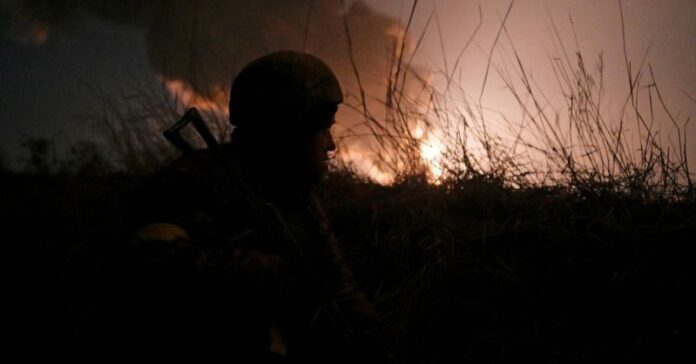Russian President Vladimir Putin‘s announcement that his nuclear forces were on high alert sparked outcry in the West as the invading troops faced stiff resistance on Monday, according to France24.
The UN General Assembly will hold a rare emergency session Monday to discuss the conflict, which has claimed dozens of lives and raised fears that it will displace millions of people.
Ukraine has also said it had agreed to send a delegation to meet Russian representatives on the border with Belarus, which would be the two sides’ first public contact since war erupted.
Russia invaded on Thursday and quickly announced it had neutralised key Ukrainian military facilities, but fierce fighting has since raged.
Putin ordered Sunday Russia’s nuclear forces onto high alert in response to what he called “unfriendly” steps by the West. Russia has the world’s largest arsenal of nuclear weapons and a huge cache of ballistic missiles.
The United States, the world’s second largest nuclear power, slammed Putin’s order as “totally unacceptable”. Germany said Putin’s nuclear order was because his offensive had “halted” and was not going to plan.
Ahead of the planned talks with Russia and as Ukrainian forces defended key cities, Foreign Minister Dmytro Kuleba voiced defiance. “We will not capitulate, we will not give up a single inch of our territory,” Kuleba said.
Ukrainian President Volodymyr Zelensky said he was sceptical about the talks. “As always: I do not really believe in the outcome of this meeting, but let them try,” he said.
On day four of an invasion that stunned the world, Ukrainian forces said Sunday they had defeated a Russian incursion into Ukraine’s second city Kharkiv, 500 kilometres east of Kyiv.
Moscow has made better progress in the south, however, and said it was besieging the cities of Kherson and Berdyansk. Both are located close to the Crimean peninsula, which Russia annexed from Ukraine in 2014, and from which it launched one of several invasion forces.
Ukraine has called on its own civilians to fight Russia, with a brewery in Lviv in the country’s west switching its production line from beers to bombs, making Molotov cocktails for the volunteer fighters.
The United States and its allies continued to try and build economic and military pressure. NATO will deploy its rapid response force for the first time to bolster its eastern flank.
EU member states also closed their airspace to Russian planes and many pledged arms for Ukraine – but stressed they would not themselves intervene militarily.
Brussels also announced it would provide 450 million euros for Ukraine to buy weapons and ban Russian central bank transactions, as well as restricting two Moscow-run media outlets.
The West said it would remove some Russian banks from the SWIFT bank messaging system, and freeze central bank assets.
However the European Central Bank warned Monday that the European subsidiary of the Russian state-owned Sberbank was facing bankruptcy. The Russian ruble fell almost 30 percent on Monday morning.


